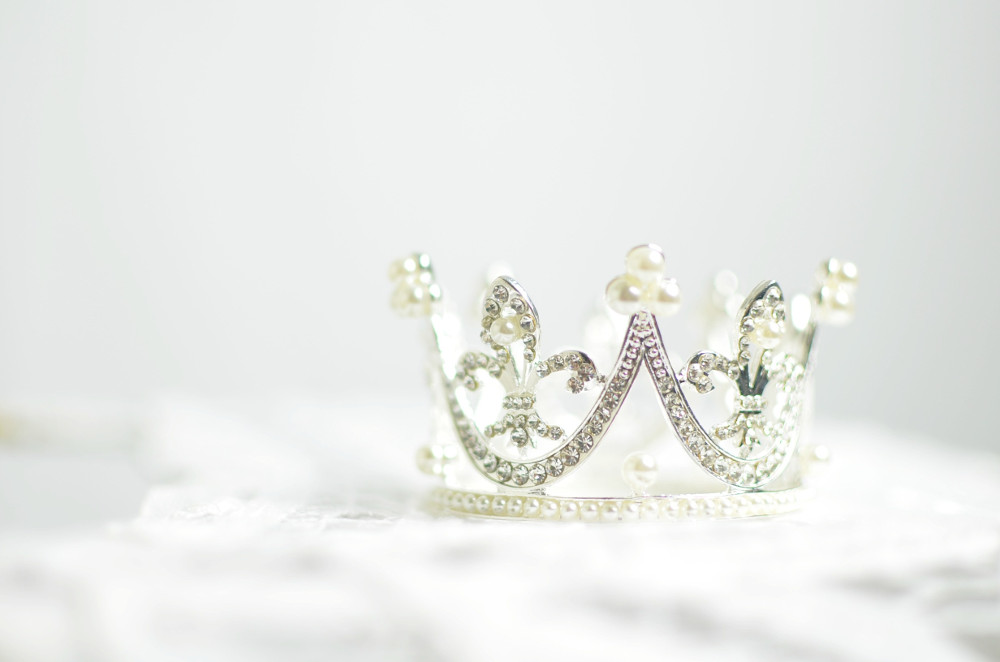
(Unsplash/Ashton Mullins)
As a mother and a grandmother, I have read a lot of books to a lot of little kids. I have read them over and over and over, until the pages are frayed and the bindings are cracked. I admit that sometimes, late at night, I read them in the most monotone voice I can muster, if I am trying to get a particular child to finally fall asleep.
So, I am really up on my fairy tales these days, and I realize there are quite a few common threads. The female protagonists are almost always orphans, or nearly so — think of Cinderella and Snow White with their dead mothers and soon-to-be-departed fathers — they often have animal companions, such as Sleeping Beauty's Aurora and her forest friends, and their stories of hardship most often culminate at the altar.
Now, while I always appreciate a happy ending, I find that recently, I am just not satisfied closing the book, and saying with a straight face to the little girl in my lap that once her prince marries her, she will live "happily ever after."
I am glad to report that I am quite happily married, but I believe ending the story at the wedding is a real disservice to children. I feel that the real adventure begins after that matrimonial ritual, making everything that came before it seem like, well, child's play. The wedding may be the end of most of these books, but it is in actuality only the beginning of the rest of one's life, full of complications and compromises.
Advertisement
I suppose this is why lately, I hesitate before I flip that final page, and add my own sort of epilogue. One is that after Cinderella and Prince Charming return from their honeymoon, Cindy goes to veterinary school, opens a clinic for farm animals, and her hubby stays home with their three kids. Another is that after Snow White marries her prince, she heads off to grad school, and becomes a lawyer who specializes in protecting abandoned children. Her prince is very supportive, likes to cook, and they live in a big city, with their two dogs and a cat.
My almost 3 year old granddaughter Mary is starting to connect words and pictures, especially in books we have read multiple times, so she gives me funny looks as I weave those reliable old endings into what I consider more modern, realistic beginnings.
I guess I am not the only one who wants to talk to our little girls this way.
During the 2015 Super Bowl, Procter & Gamble ran an ad for their feminine hygiene product Always, featuring a video called "#LikeAGirl."
Their ad campaign was actually rolled out the summer of 2014, and has been widely hailed as both groundbreaking in terms of message, and successful in terms of sales. On the company's website, they explain: "Our original #LikeAGirl social experiment was the start of an epic battle. See how we changed the meaning of 'like a girl' from an insult to the ultimate compliment it really is!"
During the recent Winter Olympics, Procter & Gamble unveiled "Love Over Bias," the newest installment of its award-winning "Thank You, Mom" ad campaign, which continues the message of the powerful influence of women, not just for themselves, but for their children.
Both videos specifically address the widespread cultural belittling of girls, and in the case of the second film, includes an effeminate presumably gay boy. The ultimate message of both is one of hope, but neither film pretends that prevailing will be easy, or that success will be given to them. Both emphasize the hard work and inner strength that pushing against and through those barriers will really entail.
This year's Winter Olympics has offered so many fine examples of amazing female athletes and that fierce and beautiful tenacity, again and again.
The downhill and cross-country skiers who have come back from injuries and surgeries, who push through painful joints and burning muscles, attacking those icy unforgiving courses with guts and precision.
The skaters who execute breathtaking leaps and spins, only to fall, but who get themselves up and finish their routines with heroic flourish.
And each of those players on the U.S. and Canadian women's hockey teams seemed to delve deep and exhaust her strength, skill and ferocity. The U.S. team won the gold, but all those athletes should exult. A medal is not the only measure of greatness, though I imagine it may not feel that way at that extreme level of competition.

Jocelyne Lamoureux-Davidson of the U.S. woman's hockey team celebrates with an American flag after defeating Canada Feb. 22 during the 2018 Winter Olympics in Gangneung, South Korea. The U.S. beat Canada 3-2 in a shootout; they last won gold in 1998, when women's hockey made its debut as an Olympic sport. (CNS/Reuters/Brian Snyder)
If these are examples of how it is to ski or skate or play "like a girl," I truly hope that all of our little boys and girls are watching, and soaking in that glorious potential.
It seems especially poignant to watch these powerful females triumph, as it was only one month ago that we witnessed the testimony of over 160 girls, women and their parents against the team doctor who sexually molested members of the USA Women's Gymnastics team. The fallout from that testimony inspired resignations of men in leadership positions of the USA Gymnastics board as well as Michigan State University, where our gymnasts practice.
In this light, it seems at least as important to remind our girls of their worth as it is to teach our boys how to interact with females as equals, not objects. The hierarchies of power in our country — in athletics, academics, corporations and politics — are still mainly dominated by men. That can only evolve if our future boys and girls make it so.
So, even though it makes little Mary roll her eyes, her Nonna will keep amending the endings of her storybooks. It will be fun to imagine how Moana handles becoming the chief of her island, or to watch Elsa and Anna co-govern their frozen kingdom, while also competing to see who is the better speed skater.
[Amy Morris-Young graduated from and taught writing at Loyola Marymount University in Los Angeles.]







